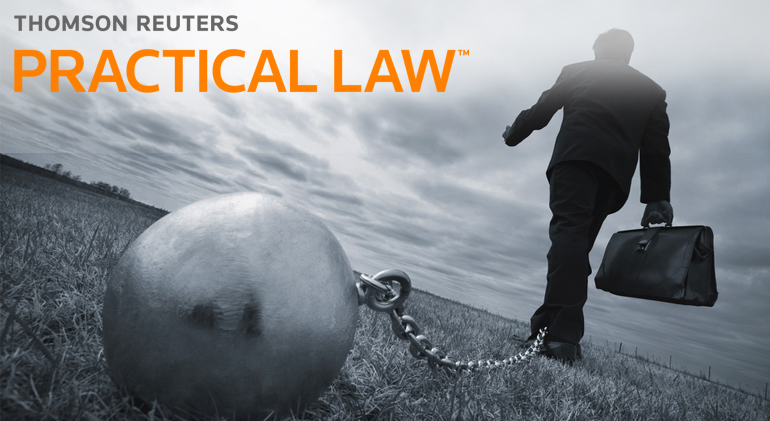One of the amendments to the Serbian Criminal Code (the Code) that will take effect on 1 March 2018 is a new criminal offence for restrictive agreements.
Antitrust law has been criminalized in Serbia for decades. So what may be the underlying intention behind these new amendments?
In one word: Focus. The Code does away with abuse of dominance and targets only restrictive agreements. But it does not stop there. The new provision is not only narrower than its predecessor but also than the general prohibition on restrictive agreements found in the Serbian Act on Protection of Competition (the Competition Act).
If read together, with a recent spike in down raids and overall ‘hardcore’ cartel busting by the Serbian competition authority (the SCA), the new enforcement agenda is obvious.
Nevertheless, the Serbian legislator missed a window of opportunity to address a number of substantive and procedural issues, giving considerable leeway to the SCA and the courts. If previous practice teaches us anything then we should brace ourselves for choppy waters on the Serbian antitrust enforcement front.
The new criminal offence brings about several legal problems, including for example:
- Lack of any differentiation between ‘by object’ and ‘by effect’ agreements. Restrictive agreements by object are regarded mostly as per se illegal and most hard-core cartels fall into this category. By contrast, restriction by effect should be proven. Therefore, the effects of said agreements shall be the subject of complex economic analysis, for which at times the SCA, let alone a criminal court, do not have sufficient knowledge. This rather arbitrary process of obtaining “proof” may lead to discrepancies between criminal and administrative proceedings. In addition, it is uncertain whether these assessments would satisfy the standards of objectivity, burden of proof and certainty of punishment, all required under criminal law.
- Inconsistency of legal concepts. The Code uses the term “business entity”, which differs from the standard and well-established competition term “undertaking”, used in the Competition Act. Contrary to other white collar crime definitions, the new criminal offence does not provide any guidance or reference as to the legal relationship between an individual liable for concluding a restrictive agreement and the “business entity”. These conceptual discrepancies may lead to a number of practical problems, especially when taking into account the potential interplay of parallel administrative and criminal proceedings.
- Double jeopardy. The new provision only increases the possibility for a company to come under investigation and, eventually, pay fines under both the Act and the Serbian Corporate Criminal Liability Act.
- Territorial effect. There is no reference to the competition law definition of ‘relevant market’ in the Code, leaving criminal courts with considerable wiggle room and possibly, extending their jurisdiction to restrictive agreements concluded outside Serbia.
- Parallel proceedings. A criminal court has no obligation to stay its proceedings if the SCA commences a parallel administrative investigation regarding an alleged restrictive agreement.
- Leniency policy.Although, the new Provision finally introduces individual leniency to couple the already existing leniency programme, its design is not the most fortunate.
The new criminal leniency provision prescribes that a person who enters into a restrictive agreement may be exempted from punishment if “the requirements for [full immunity] within the meaning of the Competition Act” are fulfilled.
The ambiguous nature of the wording may have far reaching consequences because under the Competition Act and respective Regulation:
- A full immunity from fines is provided only for a party to a restrictive agreement i.e. an undertaking acting as a ‘whistle-blower’ provided that it is not a ‘ring-leader’, subject to continuous cooperation with the SCA and a number of other reasons.
- For an undertaking that failed to win ‘race to confess’ there is the possibility of obtaining partial immunity i.e. a reduced fine. Nevertheless, the new individual criminal leniency provision fails to provide equal safeguards to anyone but the successful full immunity applicant;
- Even if an offender obtains leniency before the SCA, there is no automatic individual leniency. The exemption from criminal sanction is at the criminal court’s full discretion.
Thus, the ‘whether to save oneself or one’s company’ dilemma remains relevant for most leniency applicants.
From a strictly procedural perspective, the situation is not much better. There is a clear absence of sufficient procedural safeguards, in particular with regard to the right against self-incrimination, evidence collection and exchange of information between the SCA, public prosecutors and courts. In particular, lack of any restrictions on the exchange of information between the SCA and criminal court(s) in subsequent or parallel criminal proceedings may jeopardize both the viability of the overall leniency programme and the willingness of undertakings to notify restrictive agreements in case of individual exemptions.
In-depth understanding of not only competition law and administrative proceedings, but also criminal law and the complex interplay of the first with the latter, will be key to mounting a robust defense. From 1 March 2018, companies and individuals are best advised to seek adequate legal counsel at all stages of an investigation in case of an alleged restrictive agreement, leniency application process and/or individual exemption request.
This article was previously published by Thomson Reuters/Practical Law and available on our website with the permission of the publisher.
Contributors: Bogdan Gecić and Marija Papić, Gecić Law

